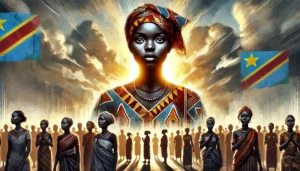When the original #MeToo wave began in the US, though there was support, there was for the most part silence in India. Women in the film industry, while admitting to the presence of a casting couch were, for the most part reluctant to name names because they felt that their standing in the industry would be at stake. This resulted in much criticism from activists who, for the most part had not faced harassment but who believed that outspokenness could only help the cause.
There were two incidents of harassers brought to caught before #MeToo came to India – Rajendra Pachauri of TERI who had worked with Al Gore and Tarun Tejpal, a renowned journalist. Both men were brought to court without any hashtagging and both are still facing regular court confrontations but no one brings them up when a #MeToo wave crests.
The most recent #MeToo accusations relate to incidents that happened over a decade ago. MJ Akbar a journalist with the Asian Age, now a BJP MLA, was accused by several of his interns who had then been afraid to speak out for fear of losing their jobs. Akbar is being pressured to resign and may do so since the Narendra Modi Government will have to prove that the dignity of women matters to them.
There are those activists who bristle when a veteran nightclub singer declares that the whole #MeToo thing has been blown out of proportion – she was one of those who never faced any harassment in her venerable career. But then Catherine Deneuve also made the mistake of saying that the issue was over hyped and was forced to back down. There are also women who repeat old accusations who have been proven wrong but proceed to come out with their accusations on every #MeToo wave like actress Kangana Ranaut who over praised Vikas Bahl the director of her film Queen in the past but today accuses him of #MeToo violations. There are others guilty of the same offence and accusations have to be judged with balance rather than with gender vehemence.
The point is, what next? The hiring of women has dropped since #MeToo came to the forefront though offices have issued anti sexual harassment warnings in the workplace. Office romances have been banned – god knows what a glance might lead to. The problem is that attraction between the sexes in genetically designed. There are men, women and transgenders who flirt and there are some who are stupid about it, thinking that they have the right to get away with anything.
One can put this down to the fact that #MeToo has the advantage of social networking behind it. Anything put on facebook and Whatsapp spreads like wildfire – something that did not happen before in days when women were presumably equally harassed but dealt with it in different ways. Today as a movement it demands regulations of some sort to be enforced. But the point is that it has had its fall out – schools in India are reluctant to hire male teachers because of the numbers of molested children that come to the forefront and offices – as the figures show – are reluctant to hire women.
What #MeToo is doing is allowing upwardly mobile social media active women a voice and by the force of volume putting pressure on people in power simply because it originated abroad and continues to hold sway. However, whether this is a passing show or a permanent kind of change only time can tell – especially in the run up to the 2019 elections. It might be wise to remember that in the US Kavanaugh got though despite being a #MeToo offender.
The point is that India is still a patriarchy. It is a country where violence against women is rife where rapes are common and women are molested in trains and in their homes. This despite media protests and facebook comments.



